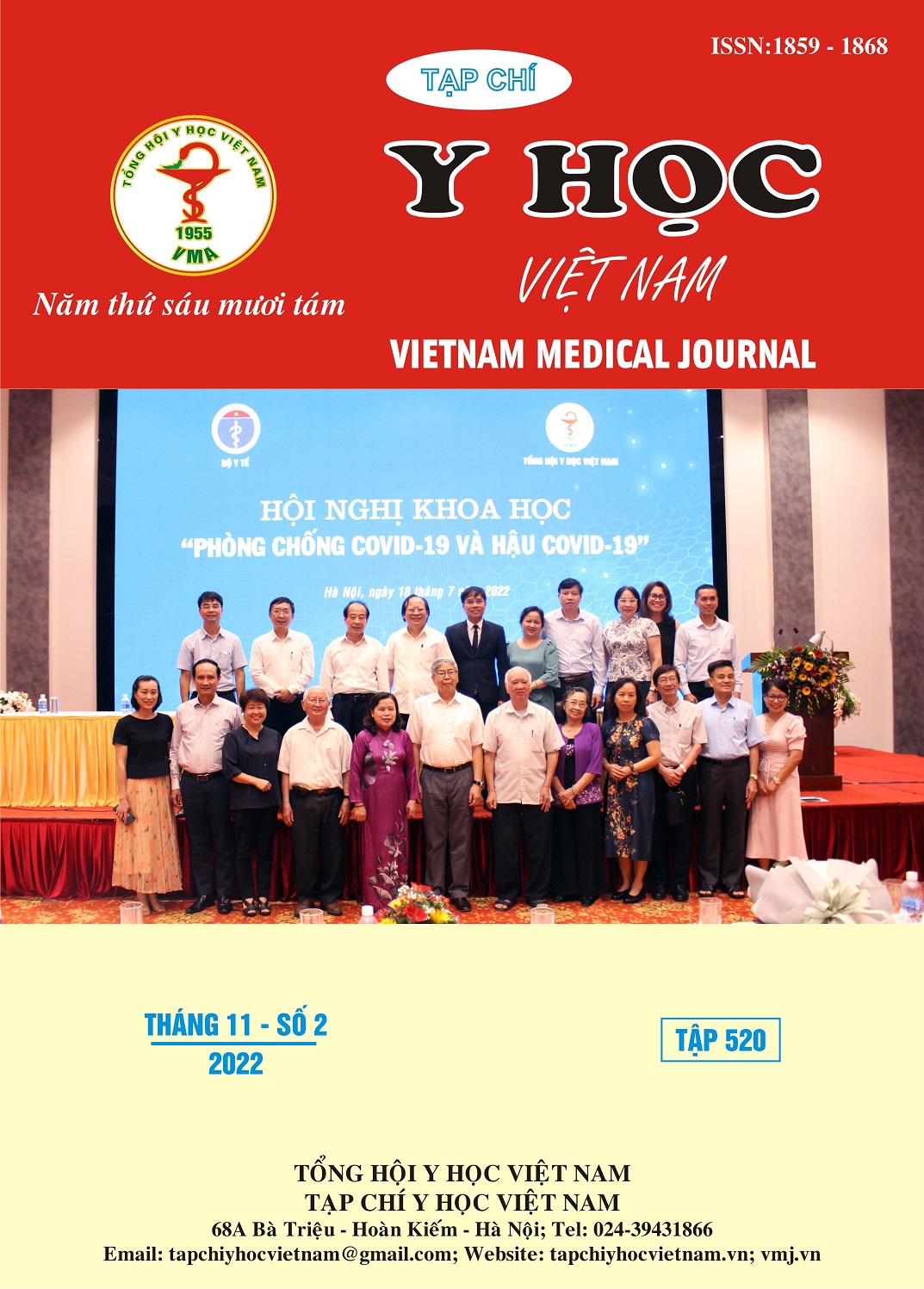THE CHANGE IN NURSING KNOWLEDGE ON EARLY WARNING SCORE
Main Article Content
Abstract
This study aimed to describe the knowledge of nurses about the early warning scale (EWS) and analyzing some factors related to knowledge before and after training at the Emergency and ICU in the period 2021- 2022, this was a before-after intervention study, conducted on 30 nurses in the Emergency and Critical Care Department through the EWS knowledge questionnaire. The majority of nurses are female (60%), under 30 years old (56.7%), have had university degrees (66.7%), and have had less than 10 years of experience (83.3%). There was a change in good knowledge about EWS of nurses from 20% (before intervention) to 76.7% (after training), p < 0.05. Three factors that have a statistically significant influence on the mean score of EWS knowledge after training are gender, age group and working seniority.
Article Details
Keywords
early warning score (EWS), knowledge, training, nurse
References
2. Pradnyana IGBA, Susila IMDP, Hakim NR. The Relationship between Knowledge Level and Nurse Compliance in Running the Early Warning Score at BIMC Hospital Kuta. J ONLINE KEPERAWATAN Indones. 2021;4(1):35-42. doi:10.51544/keperawatan.v4i1.1834
3. Olang J, Manik MJ, Simamora O. Nurses’ knowledge of early warning score at a private hospital in Eastern Indonesia. Nurs Curr J Keperawatan. 2019;7(1):9-15. doi:10.19166/nc.v7i1.2140
4. Alias AL, Ludin SM. Knowledge, Attitudes and Practice of Nurses in Assessing Patients using Early Warning Sign (EWS) Scoring in a teaching hospital in Kuantan Pahang, Malaysia. Published online July 2, 2022. Accessed September 17, 2022. https://journals.iium.edu.my/ ijcs/ index.php/ijcs/article/view/218
5. Damayanti R, Trisyani Y, Nuraeni A. Effects of Early Warning Score (EWS) Tutorial Simulation on Nurses’ Knowledge and Clinical Performance. Nurse Media J Nurs. 2019;9(2):231-241. doi:10.14710/nmjn.v9i2.24821
6. Lindsey PL, Jenkins S. Nursing students’ clinical judgment regarding rapid response: the influence of a clinical simulation education intervention. Nurs Forum (Auckl). 2013;48(1):61-70. doi:10.1111/nuf.12002
7. Kyriacos U, Jelsma J, James M, Jordan S. Early warning scoring systems versus standard observations charts for wards in South Africa: a cluster randomized controlled trial. Trials. 2015;16:103. doi:10.1186/s13063-015-0624-2
8. National Early Warning Score (NEWS) 2. RCP London. Published December 19, 2017. Accessed April 2, 2021. https://www.rcplondon.ac.uk/ projects/ outputs/national-early-warning-score-news-2


